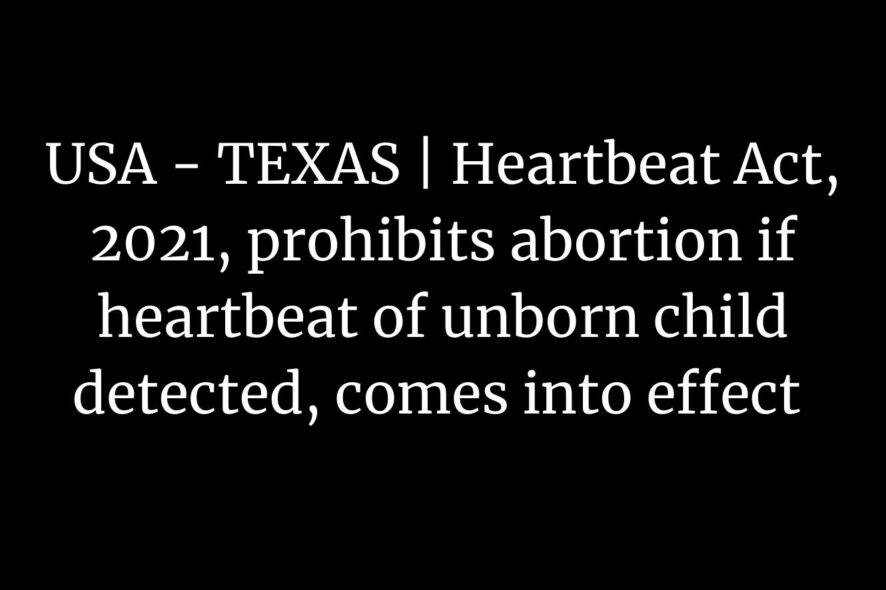After the United States Supreme Court declined the request of urgent stay of Heartbeat Act, 2021, the New Abortion Law comes into force in Texas on September 1, 2021.
Key highlights of the Act are:
- The Heartbeat Act, 2021 bans abortions if there is a fetal heartbeat that can be detected. It has been in controversy as it bans most abortions after about six weeks of pregnancy as per the medical experts (Act has not specified the weeks).
- The Heartbeat Act provides that any physician planning to perform an abortion has to check whether the unborn child has a detectable heartbeat. Then if a fetal heartbeat has been detected by the physician, the physician may not knowingly perform or induce an abortion on a pregnant woman.
- In cases of medical emergencies, an exception has been provided under the Act. However, it will be the decision of the physician to determine what qualifies.
- A civil liability for violation or aiding or abetting violation can be raised by private citizens. Any person, other than an officer or employee of a state or local governmental entity in this state, may bring a civil action against any person who:
- performs or induces an abortion in violation;
- knowingly engages in conduct that aids or abets the performance or inducement of an abortion, including paying for or reimbursing the costs of an abortion through insurance or otherwise.
- The private citizens can be awarded injunctive relief to prevent the defendant from breaking the law and statutory damages for about $10,000 for each abortion, as well as costs and attorney’s fees through the law suit.
- The lawsuit must be filed within four years of the abortion.
*Tanvi Singh, Editorial Assistant has reported this brief.







